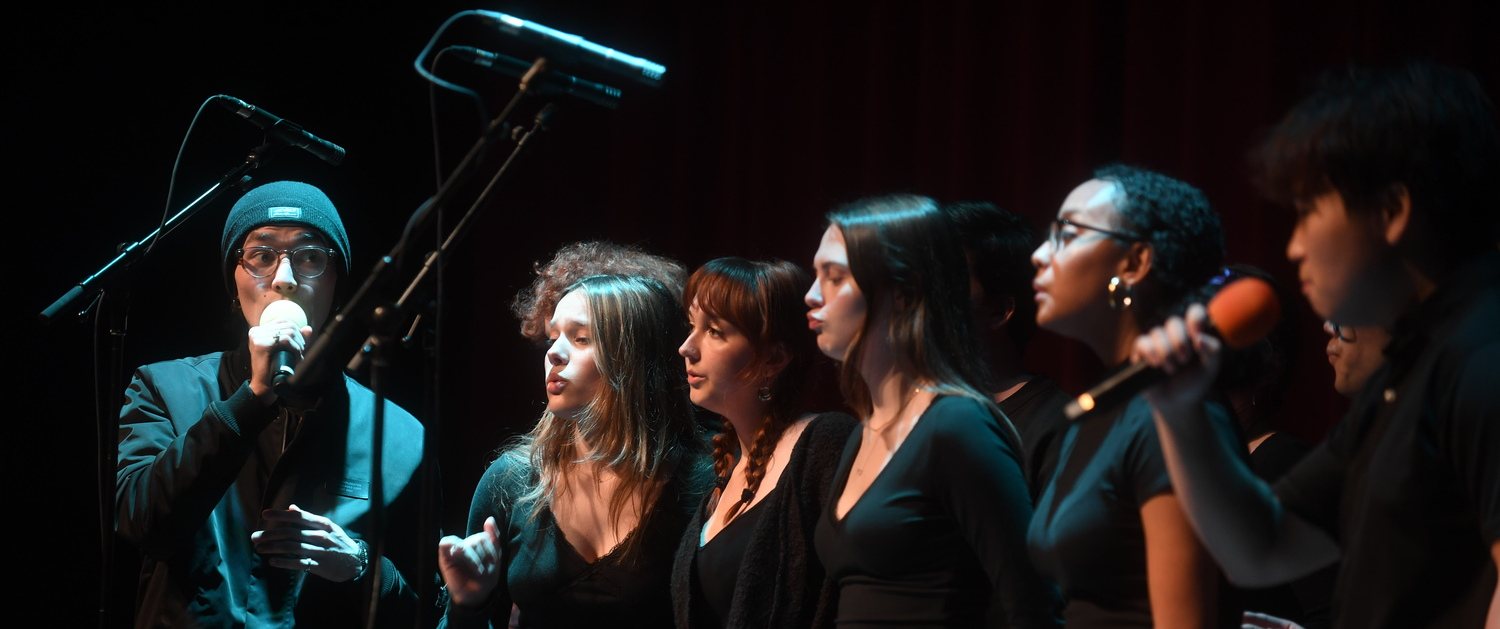About the Music Department
Conscious of Boston College's mission, the Music Department aims to educate the whole person. Our programs are designed to engage the intellectual, emotional, physical and spiritual faculties of our students, the BC family, and the wider community.
Our Offerings
The Music Department serves five interrelated functions:
- We organize academic courses for the Core and towards both a major and a minor in music.
- We offer unique performance opportunities (orchestra, chamber music, etc.) supported by an array of individual lessons in voice or on instruments.
- We organize and facilitate a broad variety of concert performances for the campus community and the wider public.
- We support a center for excellence in music research with a particular emphasis on Sacred Music. Our research and creativity is regularly showcased in conferences, academic publications, concert platforms, and digital media.
- We serve as advocates, both on and off campus, for the value of music within an educated, civil society through our high profile in research, performance, pedagogy, and service.
Our Approach
We aim to provide a comprehensive education that connects the disciplines of scholarship, composition, and performance to the humanities, the sciences, and the professions.
Our commitment to the Jesuit, Catholic ideal of cura personalis—meaning "care for the whole person"—informs every aspect of our interactions with our students, our colleagues, and our disciplines.Through a variety of dynamic approaches to the musical arts, we foster creativity both in the classroom and on campus. While our students receive a rigorous and systematic undergraduate education that emphasizes the whole musician, they are encouraged to connect their newly-acquired knowledge and skills to other aspects of their studies and, indeed, their lives.
Facts & Figures
18
Musical Ensembles
28
Faculty Members
10
Courses Required for the Music Major
Contact the Music Department


